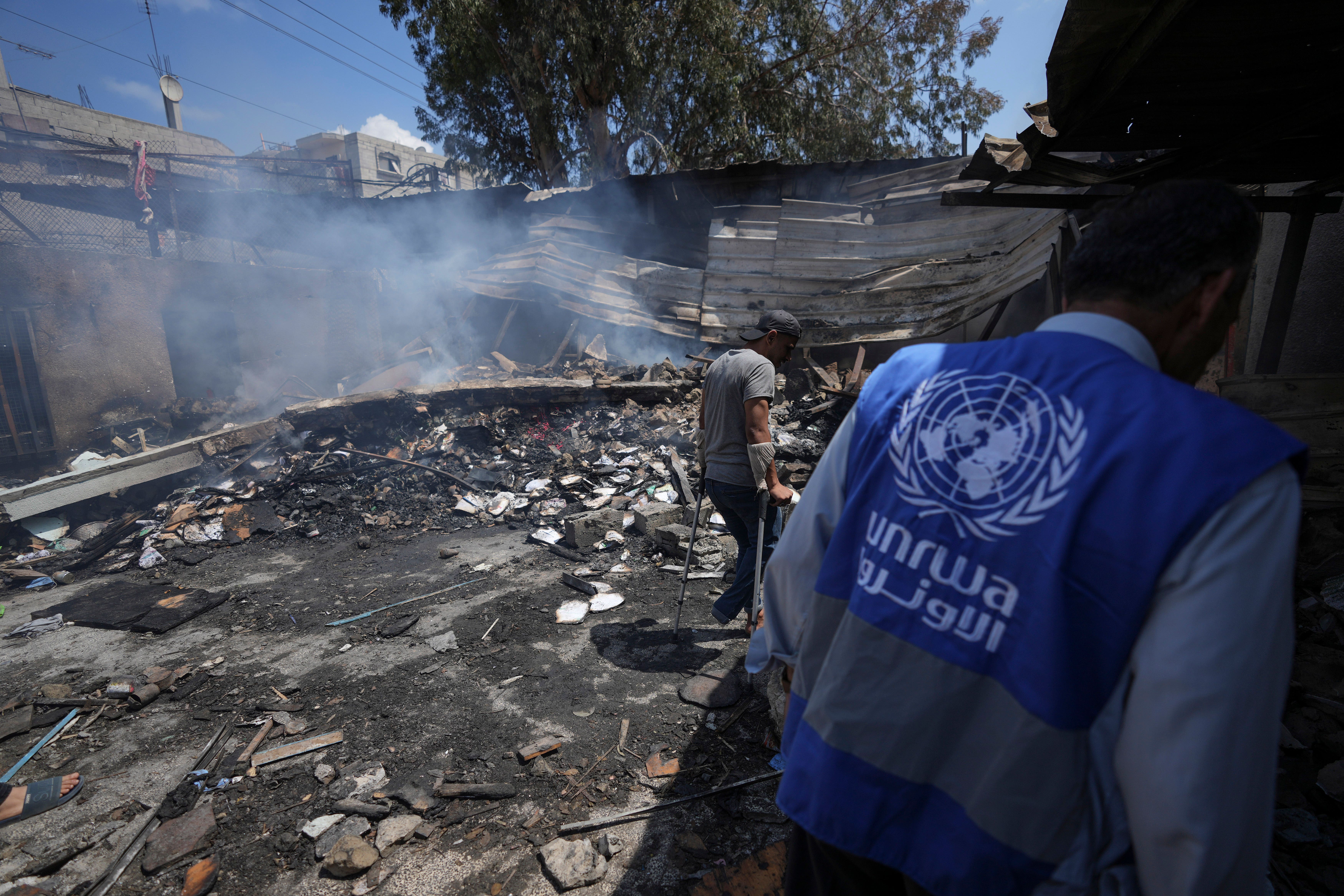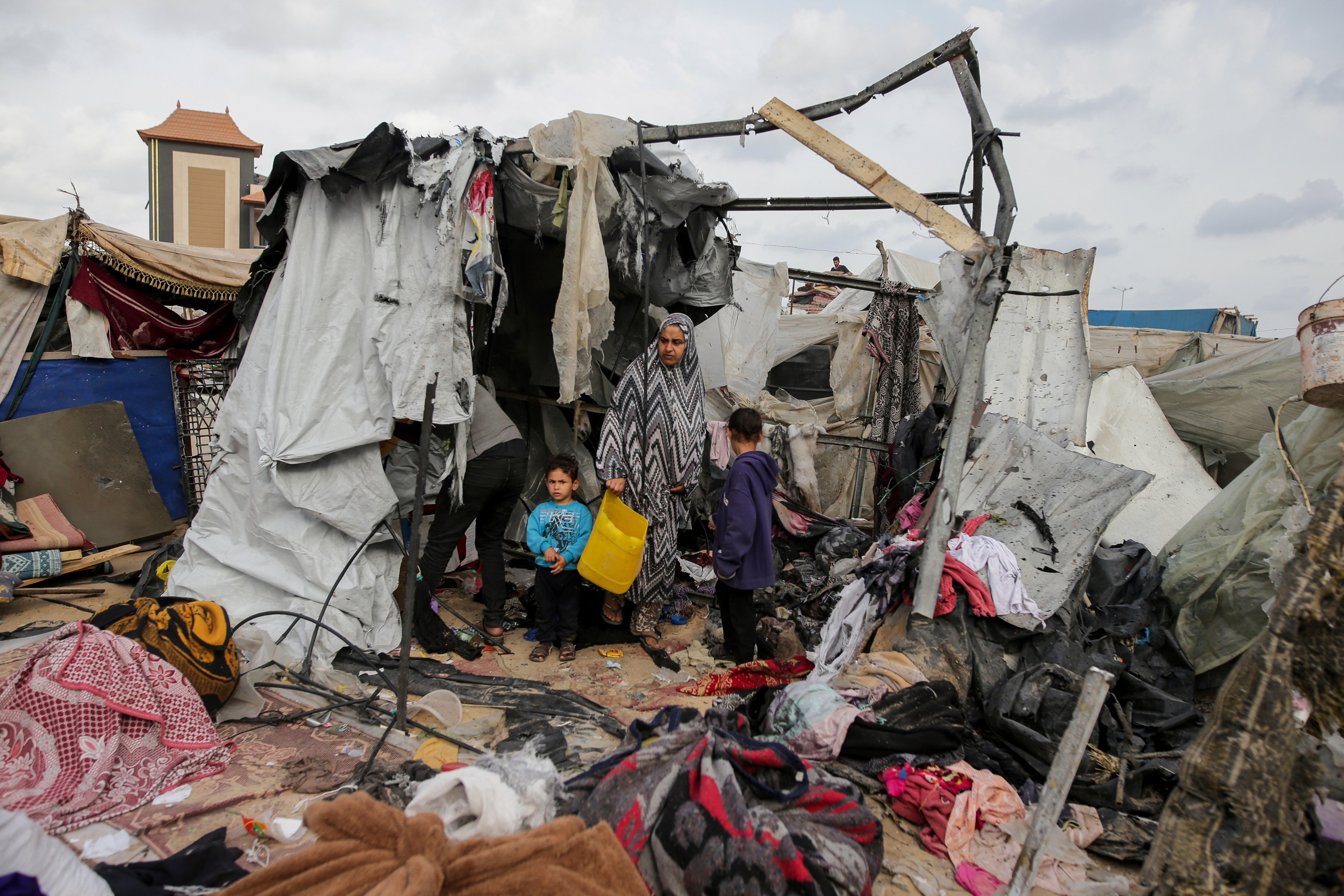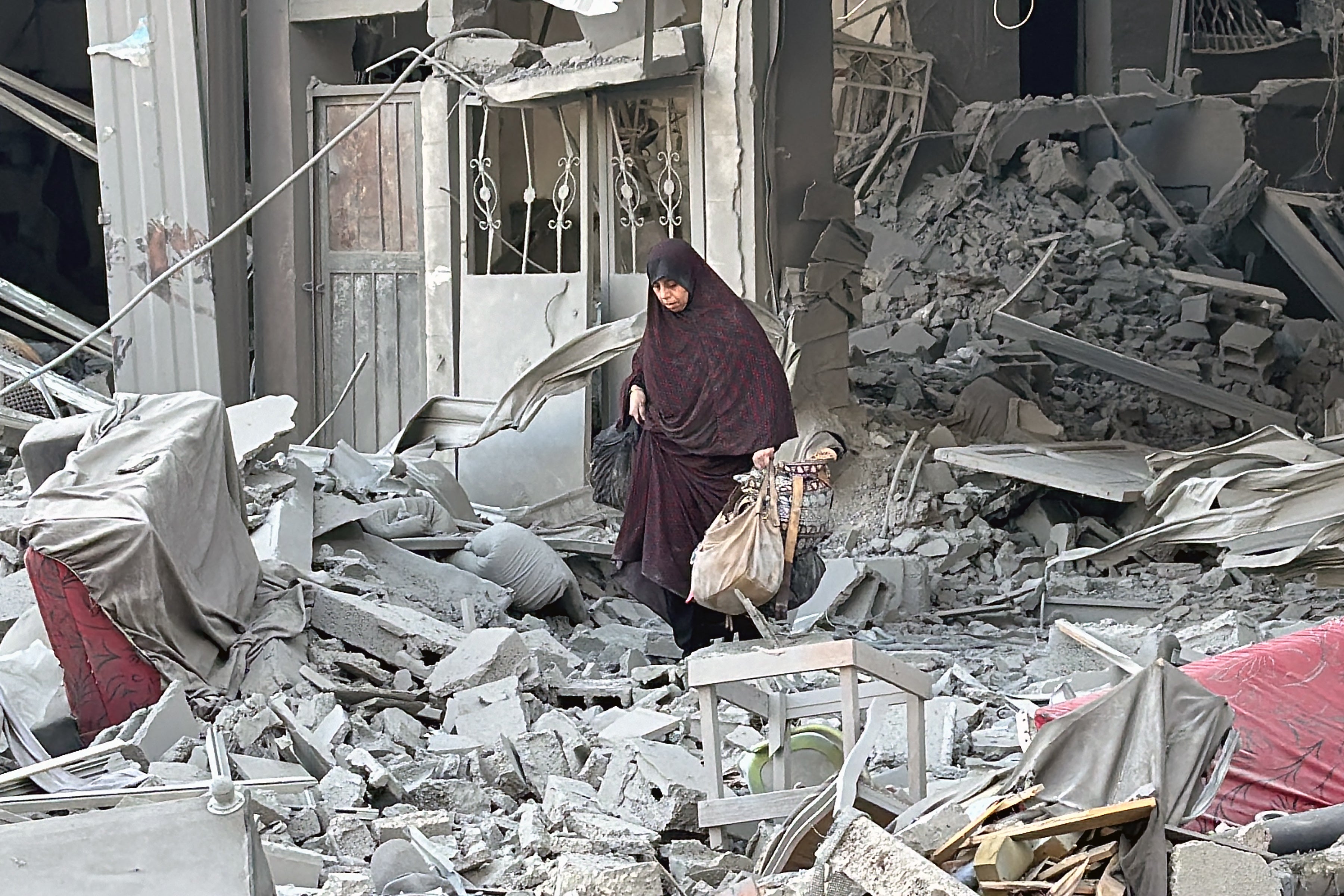US urges Israel to rethink UNRWA ban, as Hezbollah announces new leader
UNRWA’s director said the lifesaving organisation is ‘not sure there is a plan B’ to its vital services

Your support helps us to tell the story
From reproductive rights to climate change to Big Tech, The Independent is on the ground when the story is developing. Whether it's investigating the financials of Elon Musk's pro-Trump PAC or producing our latest documentary, 'The A Word', which shines a light on the American women fighting for reproductive rights, we know how important it is to parse out the facts from the messaging.
At such a critical moment in US history, we need reporters on the ground. Your donation allows us to keep sending journalists to speak to both sides of the story.
The Independent is trusted by Americans across the entire political spectrum. And unlike many other quality news outlets, we choose not to lock Americans out of our reporting and analysis with paywalls. We believe quality journalism should be available to everyone, paid for by those who can afford it.
Your support makes all the difference.The US has criticised Israel’s decision to ban the UN relief agency for Palestinian refugees (UNRWA), warning of severe humanitarian consequences for millions, as Hezbollah appoints a new leader amid violence in Gaza and Lebanon.
As Israel’s new law against UNRWA draws international backlash, including condemnations from Spain, Ireland, Norway, Slovenia, and the UK, a US State Department spokesperson cautioned that the move risks a “catastrophe” for over three million Palestinians dependent on the agency for vital services.
The legislation, approved on Monday by the Israeli parliament, would – if implemented – prevent UNRWA from providing lifesaving support to Palestinians across Israeli-occupied Gaza and the West Bank.
The UN General Assembly established the body in 1949 to assist Palestinian refugees displaced during the founding of Israel. Today, it remains the primary organisation delivering humanitarian aid in Gaza and supports millions of Palestinian refugees across the occupied West Bank, Lebanon, Jordan, and Syria.

The ban adds another flashpoint to the escalating conflict, with at least 93 Palestinians reportedly killed in an Israeli airstrike in northern Gaza early on Tuesday.
The Gaza health ministry has reported mounting casualties, including many children, amid critical shortages of medical supplies following the evacuation of a local hospital. Horrifying footage from the scene shows people digging through rubble to retrieve bodies.
Meanwhile, Hezbollah announced a new leader, Naim Qassem, following the death of its former leader, Hassan Nasrallah, in an Israeli airstrike in Beirut. The appointment comes as the conflict in Lebanon intensified in recent weeks.
The 71-year-old, a long-time deputy to Nasrallah, has served as the militant group’s acting leader since Nasrallah’s death and was chosen due to his “adherence to the principles and goals of Hezbollah”, according to the Iranian-backed group’s statement.
Qassem is thought to be living in Iran’s capital Tehran, according to local media reports, after several senior Hezbollah members were killed by Israel in a series of attacks in recent weeks.

Hezbollah and Israel started trading near-daily cross-border fire in the wake of Israel launching its war in Gaza in retaliation for the 7 October attack on Israel by Hamas, in which around 1,200 people were killed and 251 taken hostage.
Israel’s retaliatory air and ground assault in Gaza has killed more than 43,000 people, according to the latest update from the health ministry in Hamas-run Gaza and has led to more than 90 per cent of the territory’s population being displaced.
More than 1,400 people have been killed in Lebanon since Israel stepped up its campaign against Hezbollah last month. More than 2,000 people have died in the country since the 7 October attack.
Over the past year, Lebanon’s health ministry reports that more than 2,700 people have died and almost 12,500 have been injured. Hezbollah has launched thousands of rocket and drone attacks on Israel during this period, resulting in the deaths of at least 59 people in northern Israel and the Golan Heights.
UNRWA provides a wide range of aid and services including healthcare, shelter, food and education. It is also an important source of employment for Palestinian refugees, who make up most of its more than 30,000 employees in the region
Israeli officials cited the involvement of a handful of UNRWA’s thousands of staffers in the 7 October attack and a few staffers’ membership in Hamas and other armed groups.
It is still unclear how the decision will impact the lives of Palestinians, especially in the Gaza Strip, but one charity, Action Aid, said there is no alternative to the lifesaving body. It said the “outrageous move” by the Israeli government will “dismantle the backbone of the humanitarian response in Gaza”.
UNRWA director William Deere said the organisation is “not sure there is a plan B”, telling the BBC it is “the backbone of the humanitarian response”.
Prime minister Sir Keir Starmer has also expressed concern over the ban, describing the humanitarian situation in Gaza as “simply unacceptable”, saying Israel must ensure sufficient aid reaches civilians in the besieged enclave.
Subscribe to Independent Premium to bookmark this article
Want to bookmark your favourite articles and stories to read or reference later? Start your Independent Premium subscription today.
Join our commenting forum
Join thought-provoking conversations, follow other Independent readers and see their replies
Comments